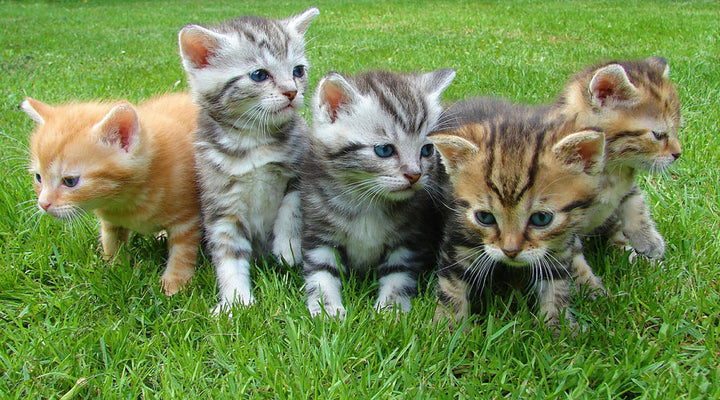Sterilising your cat may seem like a cruel action, especially when viewed from a human context. Pet owners might imagine a human being in the situation and think similarly on behalf of their feline friend: “Am I preventing it from reproductive action, taking away its virility, or even causing unhappiness? ”
However, the truth might be more of the opposite. Sterilising your cat might actually be good for your cat, helping him or her achieve better health, mental state and even enjoy a longer life expectancy. Beyond preventing unwanted breeding, here are some reasons why sterilising your cat may do your pet’s health and well-being a whole lot of good.
No Unwanted Pregnancies
The most apparent reason for sterilisation is that it prevents pregnancies, as such, should you want to limit the number of felines in your family, or prevent unintentional breeding, sterilisation is a logical step that you must take. Even if you are confident that there are no opportunities for breeding within your household, consider that your cat can easily slip out of your house and breed with the stray cat population in its surroundings, contributing to the population of unwanted and homeless kittens. This is especially so as the urge to mate of cats in heat is strong, and could spur them to find mates even outside their familiar surroundings.
Better Health
Especially for female cats, being unsterilised means that they have a higher risk of suffering womb infections and even uterine, ovarian and mammary cancer. As such, if you sterilise your female cat before their first heat cycle, this risk is greatly reduced or even eliminated totally. Moreover, giving birth itself carries inherent risks and can be a painful process for your cat, especially if it is young. Sterilisation also helps to lower the risk of contracting disease from other cats, especially if strays, or even stop them from being further carriers of disease.
Both male and female cats will also more likely to enjoy a longer lifespan if sterilised. Unsterilised cats have a tendency to wander off and may get lost or even get into accidents like being run down by vehicles. Male cats, who have the urge to find a mate might find themselves in fights with other male cats when competing for a female. As such, they might suffer from serious injuries or even common but serious infections such as the Feline Immunodeficiency virus. In worst-case scenarios, cats may even perish should the fight take a deadly turn.
Overall Improved Well-being
Besides minimising health and safety risks, sterilisation can also boost your cat’s mental well-being. They will no longer be frustrated and stressed when the hormones spur them out to mate, while they remain ‘trapped’ in your house. If unsterilised, this frustration can evolve to aggression that might be directed at other fellow pets (dogs or cats alike) in the house, yourself, or even the furniture lying around in your home. Male cats might indulge in unpleasant anti-social behavior as part of their sexual call, such as urinating around the place or even howling at all times of the day. On the female cat’s part, her behaviours to attract male cats might also attract unwelcome stray male cats near here house, who could further cause a nuisance to you and your family.
Without the mood cycles that the natural heat cycles bring, sterilisation will thus lead to your cat having a calmer temperament, while also being a more balanced, loyal and affectionate pet.
As for those pet owners concerned about the actual procedure, in the hands of an experienced vet, the procedure is actually minimally invasive and free of suffering. The veterinarian simply puts your feline friend under anaesthesia and make tiny incisions for removal of their reproductive organs. This process takes around 5-15 minutes and many cats recover within the span of a day. Do note that with sterilisation, your cat’s metabolism might drop and thus you should adapt his or her diet accordingly, possibly with weight-gain prevention formulas, to prevent obesity. However, weighing against all the benefits that your cat would enjoy in the long-run, sterilising your cat might actually be one of the kinder things that you do for your pet’s well-being, and is a key part of being a responsible cat owner.
